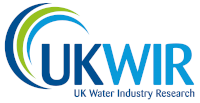Sewage sludge to biochar – a review
08/06/2023
What we did
The objectives of the project were to:
- Generate a high-level understanding of municipal scale technologies for ATC and the relative benefits – including the potential for carbon dioxide reduction
- Identify the most suitable technologies for implementation in terms of performance, benefits and readiness, and describe how they integrate within current systems
- Inform business planning by highlighting routes for further investigation by UK water and sewerage companies (WaSCs).
The team undertook a comprehensive review which explored case studies from the UK and internationally and discussions with operators and suppliers of ATC. This knowledge was then used to undertake a synthesis and appraisal to develop treatment flowsheets, with an understanding of how the value of ATC could be realised by the water industry.
The report found the implementation of ATC for sewage sludge management can result in multiple benefits including: the potential to recover valuable outputs such as biochar, syngas, phosphorous, heavy metal and volatile fatty acids; the potential to reduce carbon footprint compared with conventional sewage treatments, and the reduction in potential emerging risks such as toxic contaminants and emissions.
The report acknowledged that there is an abundance of research and a quickly growing knowledgebase associated with ATC of sewage sludge to biochar, and recommends that adaptive pathways seeking to deploy ATC as a bioresources strategy should consider transitions to mainstream treatment that are likely to impact the quality and quantity of sludge produced, as this has implication for ATC design and operation and will help ensure assets are future ready.
Given the emerging nature of much of this work, the report recommends there is an opportunity to gather further learning through the next cycle of price reviews through fieldwork, research and ongoing monitoring.
The full report - Converting sewerage sludge to biochar – a review of options and feasibility (23/SL/07/2) is available via our Publications page
